Planetary Science
-
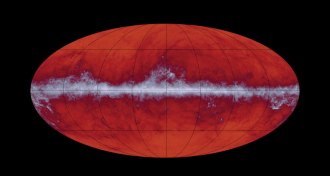 Planetary Science
Planetary ScienceHints of Oort clouds around other stars may lurk in the universe’s first light
Sifting through the universe’s early light could reveal planetary graveyards orbiting other stars.
-
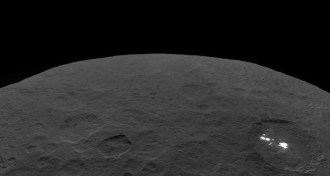 Planetary Science
Planetary ScienceDawn, the first spacecraft to orbit 2 alien worlds, has gone silent
The Dawn probe, which hopped between two objects in the asteroid belt during its seven-year mission, ran out of fuel and stopped calling home.
-
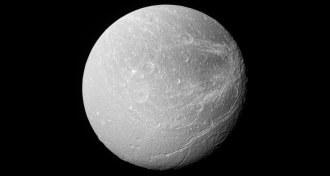 Planetary Science
Planetary ScienceSaturn’s moon Dione has stripes like no others in the solar system
Icy moon Dione has long, thin, bright lines at its equator that run surprisingly parallel to each other for tens to hundreds of kilometers.
-
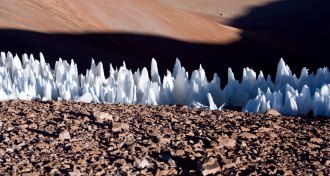 Planetary Science
Planetary ScienceSpiky ice spires may stud the equator of Jupiter’s moon Europa
Fields of jagged ice spires, if they exist, could affect where future spacecraft land on the Jovian moon.
-
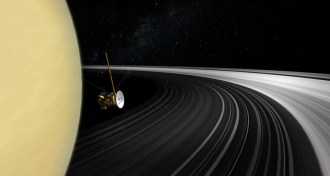 Planetary Science
Planetary ScienceSaturn’s ‘ring rain’ is a surprising cocktail of chemicals
NASA’s Cassini probe got a closeup view of the material falling from Saturn’s rings into the planet. The data could help illuminate the belts’ origins.
-
 Earth
EarthChristopher Hamilton explores the architecture of other worlds
Planetary scientist Christopher Hamilton uses Earth’s volcanic structures are a blueprint for how lava shapes other worlds.
-
 Planetary Science
Planetary ScienceReaders contemplate water on Mars and more
Readers had questions about the significance of finding water on mars, air pollution from wildfires and spray-on sensors.
-
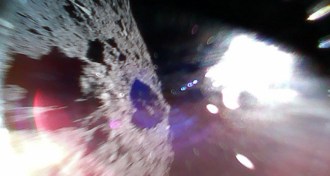 Planetary Science
Planetary ScienceThe first rovers to explore an asteroid just sent photos home
Japan’s Hayabusa2 spacecraft has deployed a pair of rovers to the surface of asteroid Ryugu.
-
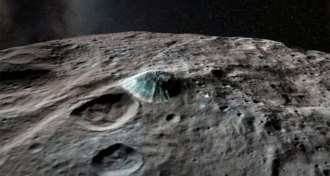 Planetary Science
Planetary ScienceThe ghosts of nearly two dozen icy volcanoes haunt dwarf planet Ceres
The slumped remains of 21 ice volcanoes suggest that the dwarf planet Ceres has been volcanically active for billions of years.
-
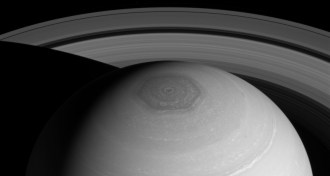 Planetary Science
Planetary ScienceSaturn has two hexagons, not one, swirling around its north pole
NASA’s Cassini spacecraft spied a vortex growing high over Saturn’s north pole, whose hexagonal shape mirrors a famous underlying cyclone.
-
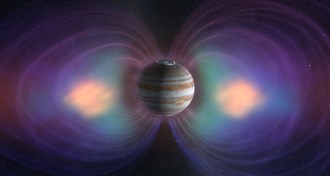 Planetary Science
Planetary ScienceJupiter’s magnetic field is surprisingly weird
New results from NASA’s Juno spacecraft reveal different magnetic behavior in the planet’s northern and southern hemispheres.
-
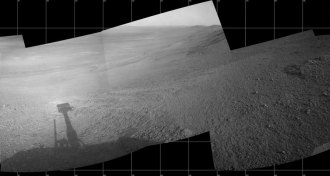 Planetary Science
Planetary ScienceThe massive Mars dust storm is waning. Now, will Opportunity wake?
With a global dust storm on Mars finally passing, NASA hopes that its Opportunity rover will soon phone home.